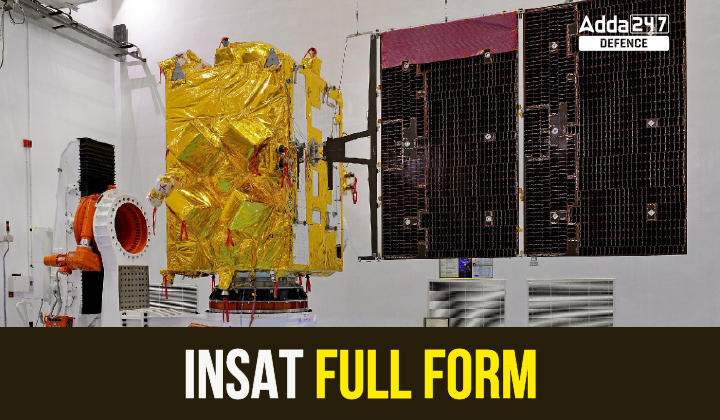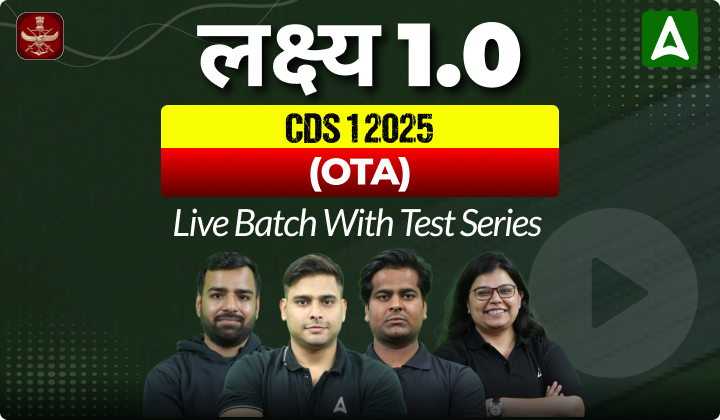INSAT Full Form
INSAT Full Form: INSAT stands for Indian National Satellite System, a series of multipurpose geostationary satellites launched by ISRO for the purpose of telecommunications, broadcasting, meteorology, and search and rescue operations. INSAT has the honor of being the largest domestic communication system in the Indo-Pacific Region. The first INSAT was launched in 1988, and the program expanded to include geosynchronous satellites called GSAT.
INSAT Full Form Overview
The INSAT system comprises a fleet of geostationary satellites strategically positioned in orbit over the Indian subcontinent. These satellites provide extensive coverage not only to India but also to neighboring countries in South Asia, including Afghanistan, Bhutan, Nepal, Sri Lanka, and the Maldives. With its broad footprint, INSAT enables seamless communication, broadcasting, and meteorological services across the region.
| Commissioned Year | 1983 |
| Control and coordination | Secretary-level INSAT Coordination Committee. |
| Functions | Telecommunications, broadcasting, meteorology, and search and rescue operations. |
| Associated Departments | Department of Space, Department of Telecommunications, India Meteorological Department, All India Radio and Doordarshan. |
INSAT: Facts to Consider
The versatility of the INSAT system is evident through its wide array of applications and services. Telecommunication, television broadcasting, weather forecasting, disaster management, and remote sensing are just a few areas where INSAT plays a crucial role.
- INSAT satellites provide transponders in various bands to serve the television and communication needs of India.
- Some satellites have the Very High Resolution Radiometer (VHRR), CCD cameras for meteorological imaging.
- As ISRO is a member of the Cospas-Sarsat program, INSAT satellites also incorporate transponder(s) for receiving distress alert signals for search and rescue missions in the South Asian and Indian Ocean Region
Also Check: ISRO Full Form
INSAT Full Form: INSAT Satellites
INSAT satellites are designed to remain stationary above a fixed location on Earth, thereby ensuring a consistent and reliable network. They are stationed at different orbital slots, each serving specific communication needs. This well-coordinated satellite network guarantees uninterrupted connectivity, catering to a wide range of users, from individual consumers to government agencies and private enterprises.
| Serial No. | Satellite | Date of Launch |
| 1 | INSAT-1A | 10 April 1982 |
| 2 | INSAT-1B | 30 August 1983 |
| 3 | INSAT-1C | 22 July 1988 |
| 4 | INSAT-1D | 12 June 1990 |
| 5 | INSAT-2A | 10 July 1992 |
| 6 | INSAT-2B | 23 July 1993 |
| 7 | INSAT-2C | 07 December 1995 |
| 8 | INSAT-2D | 04 June 1997 |
| 9 | INSAT-2E | 03 April 1999 |
| 10 | INSAT-3B | 22 March 2020 |
| 11 | GSAT-1 | 18 April 2001 |
| 12 | INSAT-3C | 24 January 2002 |
| 13 | KALPANA-1 | 12 September 2002 |
| 14 | INSAT-3A | 10 April 2003 |
| 15 | GSAT-2 | 08 May 2003 |
| 16 | INSAT-3E | 28 September 2003 |
| 17 | EDUSAT | 20 September 2004 |
| 18 | HAMSAT | 05 May 2005 |
| 19 | INSAT-4A | 22 December 2005 |
| 20 | INSAT-4C | 10 July 2006 |
| 21 | INSAT-4B | 12 March 2007 |
| 22 | INSAT-4CR | 02 September 2007 |
| 23 | GSAT-4 | 15 April 2010 |
| 24 | GSAT-5P | 25 December 2010 |
| 25 | GSAT-8 | 21 May 2011 |
| 26 | GSAT-12 | 15 July 2011 |
| 27 | GSAT-10 | 29 September 2012 |
| 28 | GSAT-7 | 30 August 2013 |
| 29 | GSAT-14 | 05 January 2014 |
| 30 | GSAT-16 | 07 December 2014 |
| 31 | GSAT-6 | 27 August 2015 |
| 32 | GSAT-15 | 11 November 2015 |
| 33 | GSAT-18 | 06 October 2016 |
| 34 | GSAT-9 | 05 May 2017 |
| 35 | GSAT-19 | 05 June 2017 |
| 36 | GSAT-17 | 29 June 2017 |
| 37 | GSAT-6A | 29 March 2018 |
| 38 | GSAT-29 | 14 November 2018 |
| 39 | GSAT-11 | 05 December 2018 |
| 40 | GSAT-7A | 19 December 2018 |
| 41 | GSAT-31 | 06 February 2019 |
| 42 | GSAT-30 | 17 January 2020 |
| 43 | CMS-01 | 17 December 2020 |
INSAT has undoubtedly been a game-changer in the field of space communication for India and its neighboring countries. It has provided seamless connectivity, facilitated rapid dissemination of information, and enhanced the quality of life for millions of people. From telecommunications to television broadcasting, weather forecasting to disaster management, INSAT has proved its mettle in various domains.
As India continues to push the boundaries of space technology, INSAT remains a critical component of the country’s vision for digital inclusion, socio-economic progress, and disaster resilience. With its robust network, extensive coverage, and diverse applications, INSAT is indeed India’s lifeline in space communication.




 CISF Full Form, Know About History and F...
CISF Full Form, Know About History and F...
 CRPF Full Form, History, Roles and Respo...
CRPF Full Form, History, Roles and Respo...
 NCC Full Form, Know About History and Ai...
NCC Full Form, Know About History and Ai...












